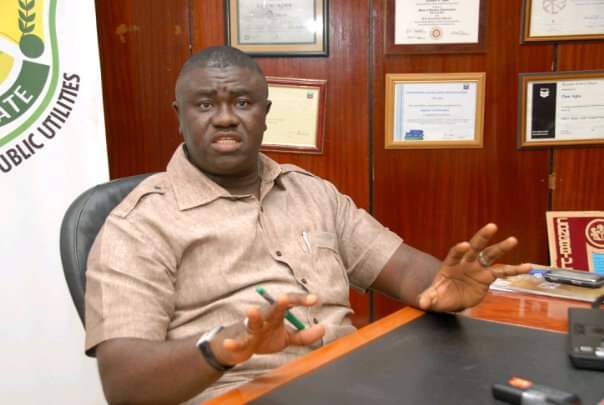FG to unveil blueprint for economic diversification for Niger Delta


Minister of state for Budget and National Planning, Prince Clem Ikanade AgbaBy Emmanuel Elebeke
The federal government has begun the process of drafting policies and instruments to assist in the urgent diversification of the Niger Delta economy into agriculture.
The plan is in collaboration with technocrats and development partners and backed by the Rome-based Agencies (RBAs): the Food and Agriculture Organisation (FAO), International Fund for Agricultural Development (IFAD) and the World Food Programme (WFP).
Declaring the stakeholders’ meeting open in Abuja, the Minister of State for Budget and National Planning, Prince Clem Agba, said the region has more than oil to offer the country. He said that the initiative seeks to launch emergency agricultural intervention projects to quickly diversify the region and create jobs for the vast majority of youths who are without jobs.
According to Agba, the move is also expected to shield the country from the negative consequences occasioned by the impact of the COVID-19 pandemic and will be accommodated in the proposed successor national development plans which are currently being drafted by stakeholders.
For him, the initiative was particularly timely, given that the diverse and severe impacts of the pandemic continued to be felt across the world especially the significant reduction in the demand and prices of oil in the global market as well as the ravages in most sectors of the economy.
The Minister who described the region as the largest wetland in Africa and endowed with loamy soil said that it is suitable for the production of both food and cash crops.
‘‘The region falls within the tropical rain forest zone with an ecosystem that is highly diverse and supportive of numerous species of terrestrial and aquatic, flora and fauna and human life.
‘‘The present economic realities underscored the compelling need for the country to pay attention to agriculture as low hanging fruit and an alternative to oil.
“It is no longer news that the global narratives and trends are fast changing, as oil is gradually losing its relevance. Countries are moving towards electronic machines and automobiles as well as solar energy.
“It is imperative that government must change its policy direction and do something different this time around,” he further said.
Also on the initiative, Agba noted that the agricultural projects is designed to benefit the Niger Delta as well as the nation’s non-oil economy especially in the production of food in appreciable abundance and the attendant creation of additional industries, reduction in the unparalleled economic shock due to the ongoing pandemic, reduction in security issues in the area thereby improving security for all along with others.
He called for the support and cooperation of the states and local governments, private sector, domestic and foreign investors, development partners, traditional institutions, farmers associations as well as host communities and all well-meaning Nigerians to enable the project to succeed in repositioning the economy to the sustainable path of growth.
‘‘The ultimate objective of the federal government is to achieve positive impact in the provision of jobs for the huge population and lifting of 100 million Nigerians out of poverty in line with the desire of President Muhammadu Buhari within the next 10 years.’’
Recall that the Niger Delta diversification initiative was initiated by the Senior Special Assistant to the President on Niger Delta, Senator Ita Enang, while the Central Bank of Nigeria (CBN) bought into the idea.
Other partners towards the actualisation of the project are the Federal Ministry of Water Resources in liaising with the River Basin Authorities of the region for the project, the Federal Ministry of Agriculture and Rural Development and the Ministry of Environment.
In his contribution, the representative of Food and Agriculture Organisation (FAO) Country Representative in Nigeria, Mr Suffyan Koroma, said that IFAD is currently funding a $60 million- rural development projects in the Niger Delta.
Koroma, however, informed that the financing window had just commenced under the technical leadership of the Federal Ministry of Agriculture and Rural Development and the Federal Ministry of Finance as the representative of the borrower.

Comments
Post a Comment